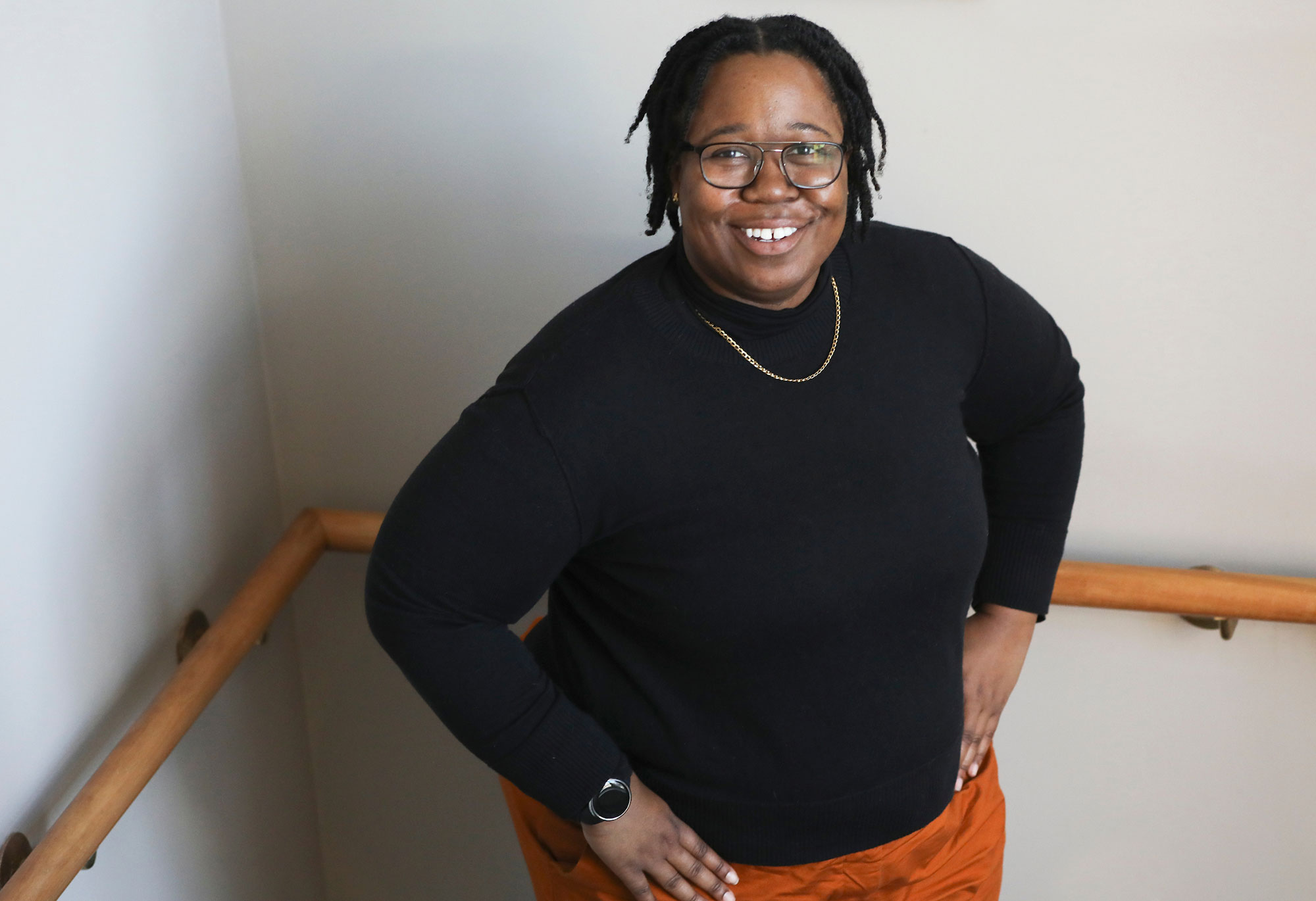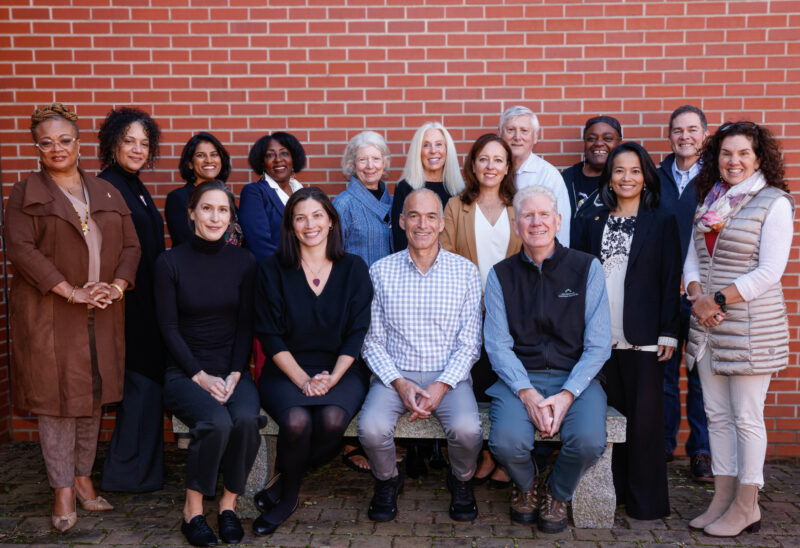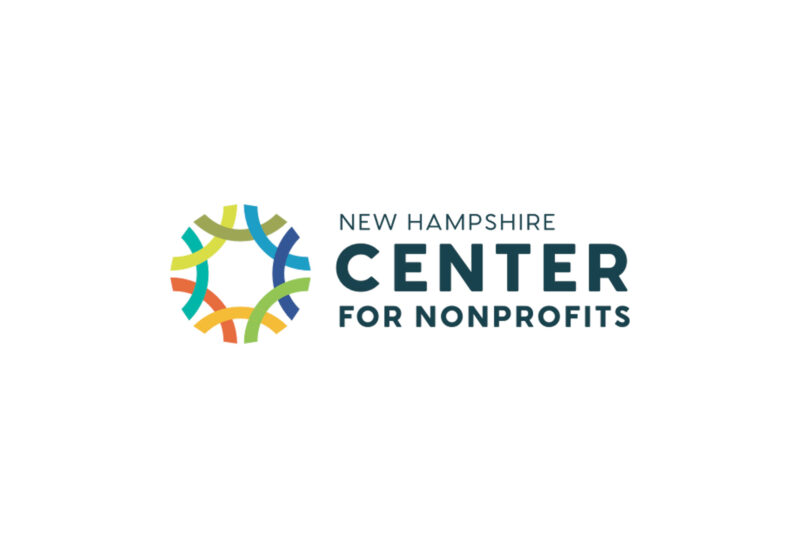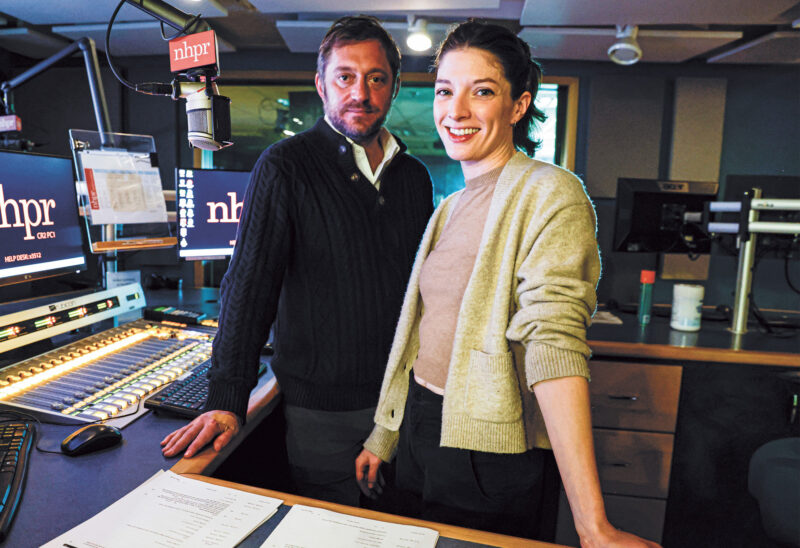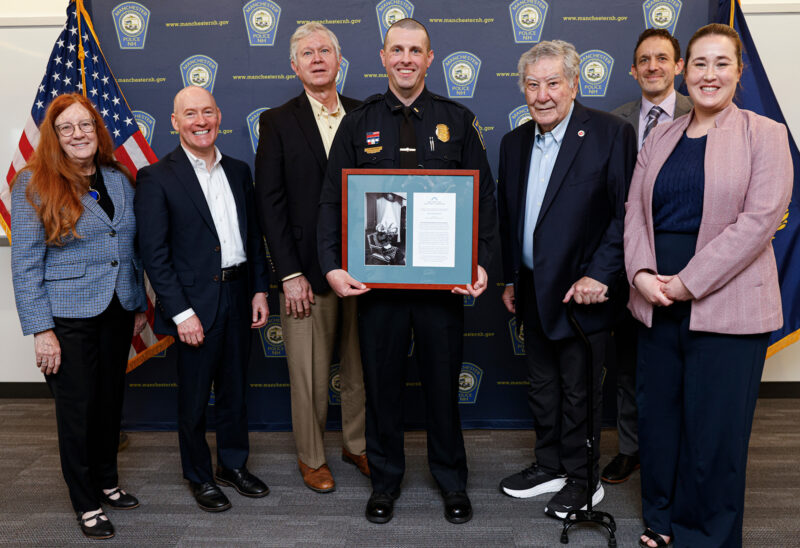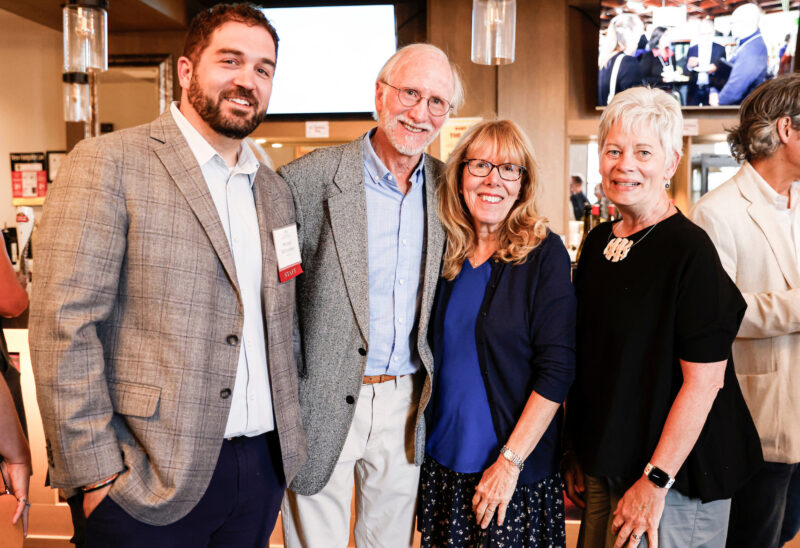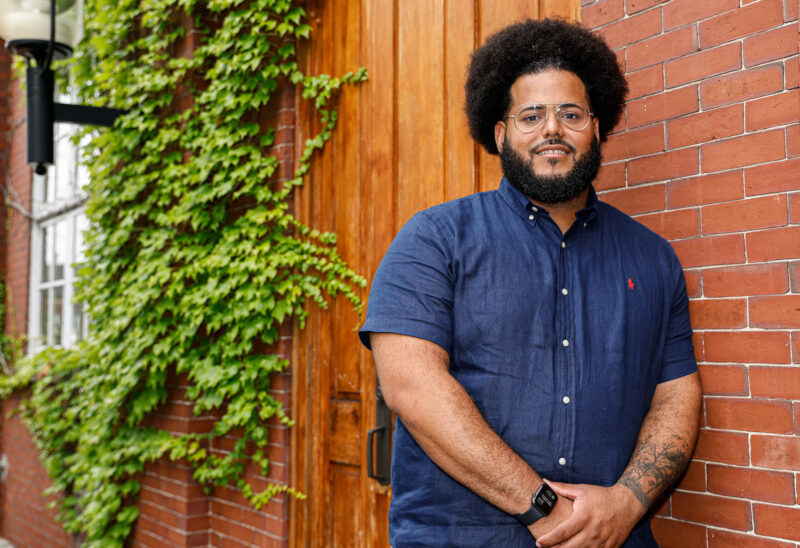Seana McDuffie joined the Charitable Foundation in fall of 2022 as a program and student aid officer.
A U.S. Marine veteran, she has worked overseeing supplies to support troops on the ground in Afghanistan and worked in health care logistics and purchasing for the Veterans’ Administration Medical Center. She talked with the Foundation’s Lois Shea about how her experience informs the work she does now, about her love of podcasts, movies and retro video games — and about the culture shock and racism she experienced when she first moved to New Hampshire. She lives with her family in Concord.
LS: I am always fascinated by the different experiences that people bring to the Foundation. Tell me why this was the next right chapter in your life’s work?
SM: I had been working at the VA in logistics and purchasing… and was trying to open my own business, and I read this job description and was like ‘how did they make a job that was me? I thought ‘this is everything that I am and stand for and am really good at.’ It was about connecting with people, connecting with community — I saw myself here.
I thought ‘I am going to apply and be myself, 99.9 percent. I am going to put that .1 percent of interview varnish on me, but I am going to show them me. And if it doesn’t work out, okay.’ I was myself and I said some very true things. I did not give safe answers, and they kept saying ‘yes.’
LS: You are both a program and student aid officer — what does that mean, as a practical matter?
SM: It means balancing my attention between New Hampshire Tomorrow and student aid and grantmaking. Ideally, it’s seeing what the intersections are and seeing those opportunities. It actually came up in my first two weeks, we had a grantee that is an early childhood development center and the executive director was paying out of her pocket for all the books and materials for her employees to get their accreditations. And I’m like ‘why can’t we have her students apply for scholarships for that, towards that certification?’ And it worked! And there is the intersection, right there.
LS: Tell me about how the experiences you have had are informing the work you’re doing now. You are a Marine veteran, you were stationed both in Japan and at Camp Lejeune…and among other things, you coordinated logistics and financial management between several branches of the military, managing a $250M supply account and supporting ground operations in Afghanistan for 5,000+ Marines and Sailors…
SM: I’m from DC, born and raised, and that has really informed how I view the world. I have lived in a very diverse city — economically, socially and culturally. And then joining the military and being in really stressful situations, where we’re all pissed off and dirty and angry and sad and hurt mentally and physically, with women from all over the country and having to band together and to get through it together. I was 19 when I joined. Those experiences with many different people from many different backgrounds, cultures and languages has given me the ability to adapt and understand the spectrum of people.
Coming here to New Hampshire was a really big culture shock for me, I have never been in this kind of environment before. I had lived in Japan, but when you’re in Japan you expect to be in a homogenous country, that is not a shock — you embrace it and it is a new adventure. You don’t really think about other sections of America that aren’t as culturally diverse as what I grew up with and experienced though my military service.
I have been poor. I grew up in DC in the 80s and 90s, so I understand the effects that substance abuse can have on a family, a community, a city. I understand and sympathize and empathize with people who are going through mental health issues, because I go through that. I get my health services though the VA, so I have socialized health care through the VA, but I get when people are insecure with health insurance.
So all of those experiences kind of coalesced and when I read job description I thought ‘I can take all these life experiences and adventures and missteps and heartaches and heartbreaks and tears and bruises, and I can be a lived-experience voice for the people that we’re helping here in New Hampshire.’ This may not look like the community I grew up in, but people are the same everywhere.
LS: So you were 21 years old, managing $250 million to support ground operations in the Marines. What is that like?
SM: It was just my job. I wanted to go (to Afghanistan), I wanted to be out there but I couldn’t go because my knees were trash. So my battalion went and while they were out there doing their job, we back stateside would make sure that those supplies got sent out to them…I went to work at 0700, got off at 1630, Monday-Friday. I just happened to wear cammies.
LS: What made you choose the Marines?
SM: I was working as a pharmacy tech at CVS, I got bored with school, and I was helping out a customer. He needed some pregnancy tests, and I was explaining different pregnancy tests. And he was like ‘wow, no one has ever broke this down for me like that. You’re really smart.’ And I was like ‘yeah,’ and he was like ‘you ever think about joining the Marine Corps? What are you doing tomorrow? You wanna come down to the office?’ And I’m like ‘sure.’ And that was it. I took the practice ASVAB (armed services vocational aptitude battery) test and did really well, and he was like ‘do you want to join the Marine Corps?’ And I was like ‘sure,’ and he was like, ‘when do you want to go?’ And I was like ‘when can I leave?’ And I joined the Marine Corps. It was pretty…cavalier.
LS: What is your “why NH” story? We all have one — if we are transplants, like me, or if we were born here and keep choosing this place.
SM: People.
When I first moved here, New Hampshire was not a good place for me at all. This was a complete culture shock for me. I was never in a place where I had looked around and didn’t see somebody who looked like me.
In my first couple weeks here, I was driving with my husband, and a Jeep was in front of us and the whole back of the Jeep was covered with a confederate flag and I am like ‘What? Hold up. Where am I? Are we in the north? The Union? Why is that here?’
I got called the ‘n’ word more times than I had in my life. And I just didn’t feel welcome, I didn’t see myself here, I couldn’t find anybody to connect with.
But my husband and I moved here to Concord. We had been staying with my husband’s family in Laconia while we looked for a house. And I found my house, and I looked around the area, and I am like ‘I can work with this. There is a grocery store here, there is a comic book store, there is a record store and there is an …. independent movie theatre? I can see my independent films here? This is a wrap.’
And then I started making friends. I started going to Concord Young Professionals, networking. And I have met so many people and created real, lasting relationships. So that’s why I choose New Hampshire. I have been here now seven years, which is crazy. And I have met some of the most amazing people I have ever met in my life. I stay here for the people.
LS: For a while, you were planning to open a “barcade” — a combination arcade with retro video games and a bar. You can’t be old enough to remember those games…?
SM: Yes, I am! I am a child born in the late 80s and grew up in the 90s and malls were still a thing, and malls had arcades with video game cabinets. I thought this would be really cool, and I found out about Stay, Work Play and trying to get young people to stay here in New Hampshire….and what do people of a certain age like? We are high on the drug of nostalgia. We love Saturday morning cartoons and school pictures with laser backgrounds but we also like the privileges of being an adult and enjoying some good food and maybe a tasty beverage. I wanted to bring that concept here. It did not work out, but I still have a lot of cabinets in a storage locker.
LS: You launched a podcast a bunch of years back called “Black Face White Place,” which you can still find on Apple. Tell me about that.
SM: That was one of the things I did to make the best of where I am and get my voice out and my perspective out. This was like a Twilight Zone for me. I wanted to be able to share my perspective of what was going on in my life up here and what was going on in the world. It was also ‘I’m a Black person in America and this is my perspective.’
LS: I am assuming you are a podcast fan — what do you recommend?
SM: My favorite podcast is “The Read,” a comedy and pop culture podcast by Kid Fury and Crissle. I listen to “Civics 101,” I am listening to a podcast with two of the actors from “Glee.” I was a huge “Glee” fan, I converted a lot of Marines into watching “Glee.” We used to have watch parties in my room in the barracks. I love “Still Processing,” from the New York Times, with Wesley Morris and Jenna Wortham. I am a huge sports fan, so “Spinsters,” which is two women podcasting about basketball. And the greatest podcast listening experience ever had in my life was “Binge Mode, Harry Potter.” I am 34 years old, I grew up with Harry Potter. I very much do not like who JK Rowling is now. I am very sickened by the rhetoric she espouses as a TERF (trans-exclusionary radical feminist). But this podcast was the best love letter to the story and not to the woman. To lay it flat and look at it for the work of art that it is was absolutely amazing.
LS: You have a marketing and communications background.
SM: Yeah, I went to school for that.
Renee Poussaint was my hero when I was a kid. I wanted to be a journalist when I was younger. I fell in love with story and narrative. It’s why I enjoy podcasts and I love movies and I love music.
LS: Movie suggestions?
SM: My movie of the year is “Everything, Everywhere All at Once.” It’s a story about family. At the core of it, it’s a story about a mother and a daughter. And how even through the nihilism, through that meaninglessness, I would much rather be able to go through all this meaninglessness – mortgages and life and laundry — with you. Because you’re my person. And I’m a mess and you’re a mess, but we’re a mess together. It really moved me. I went to go see it with a friend and we were in the theatre by ourselves, sitting there sobbing — and then laughing right after we got done crying, and then crying again and then laughing again. It’s gonna wreck you. Get your tissues.
LS: Anything else you would want to mention that I didn’t ask?
SM: I think I covered the ups and downs that are me. There’s a lot of peaks and valleys and colorful mountains and rivers that make up my world.

